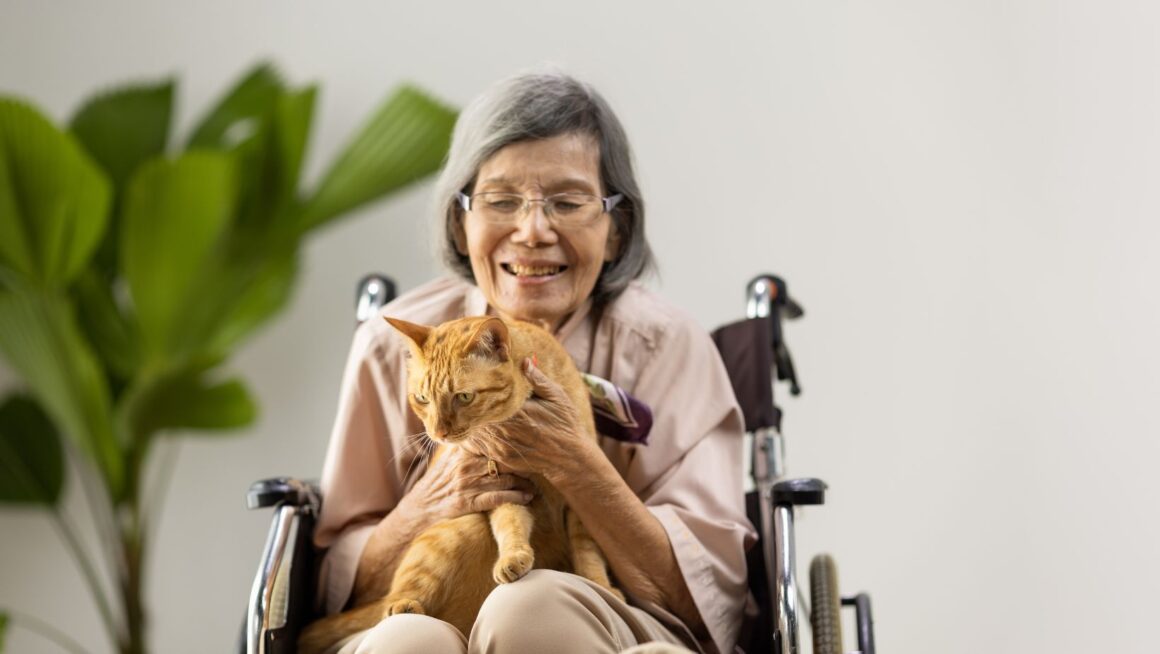As of 2024, approximately 6.7 million Americans are living with Alzheimer’s disease. The prevalence of Alzheimer’s and other dementias increases significantly with age, particularly among those 65 and older.
Caring for a loved one with dementia can be a challenging and emotional journey. As the disease progresses, families are often faced with the difficult decision of whether their loved one should move into a care home.
This decision is deeply personal and can be influenced by various factors, including the individual’s health, safety, and well-being.
Understanding the signs that indicate a need for residential care, such as when should someone with dementia go into a care home, can help families make informed choices as they handle this complicated decision-making process.
Early Signs of Needing Care
These early signs might be subtle, but they can have a big impact. Misplacing items, forgetting recent conversations, or struggling with daily routines are common indicators that shouldn’t be overlooked. As the condition gets worse, you might notice changes in behavior like confusion, restlessness, or wandering around.
These changes can put the person’s safety and well-being at risk. It is important to address these signs right away to ensure the person gets the care and support they need. Pay attention to any signs of neglecting personal hygiene, issues with medication management, or difficulties in communicating effectively.
Seeking professional guidance from a retirement community in New Jersey and exploring care options can help lessen the burden on the person with dementia and their caregivers. Early intervention and planning are key to providing the best possible care for your loved one.
Safety Concerns at Home
Everyday activities like cooking or using electrical appliances can sometimes be risky. Leaving the stove on or forgetting to turn off the water can cause accidents. Wandering is a common behavior in people with dementia and can be quite risky, as they may get disoriented and lost. This raises the chances of falling or being exposed to harsh weather conditions.
Managing medications is another important safety issue. People with dementia might forget to take their medication or may take the wrong amounts, which can result in negative health effects. Sometimes, they might confuse medications with something completely different.
People with dementia might be more susceptible to scams or exploitation, which can put them at risk of financial harm.

Be aware of these safety risks to know when it might be a good idea to think about a care home where professional supervision can help keep these dangers at bay.
Behavioral changes and challenges
As dementia progresses, individuals may exhibit various behaviors like restlessness, irritability, wandering off, or experiencing hallucinations. These behaviors can be really tough for both the person with dementia and their caregivers. Dealing with these challenges at home can get tougher over time, and one might need the kind of specialized care that a care home can offer.
Changes in behavior for those with dementia can happen for a number of reasons, such as confusion, trouble communicating, pain, or stress from their surroundings. Care homes with professionals who are trained in dementia care can create a safe and supportive environment to effectively tackle these challenges. They offer approaches to managing behavioral symptoms and ensuring the well-being of your loved one.
In a care home, your loved one will benefit from a consistent routine, specialized activities, and individualized care plans that cater to their unique needs.
Caregiver Burnout and Support
Caregiver burnout can show up as feeling really tired, easily annoyed, or just overwhelmed by everything. Make self-care a priority and reach out for support to avoid burnout.
If you are feeling overwhelmed, it might help to reach out to family, friends, or support groups for some support. Delegate tasks and responsibilities to others to lighten your load. It is important to take breaks, stay active, eat nutritious foods, and get plenty of rest for your overall health. If you are feeling overwhelmed or having a tough time, consider talking to a counselor or therapist.
Caregiver support groups offer a sense of community and understanding from others in similar situations.
Medical Needs and Specialized Care
Individuals with dementia often require specialized medical attention because of the progressive nature of the disease. This care may involve monitoring changes in cognitive function, managing medications, and addressing any coexisting health issues.
Specialized care facilities offer 24/7 supervision from trained professionals who are knowledgeable about the challenges of dementia care. These facilities are prepared to manage emergencies, like unexpected behavioral changes or medical issues, that can happen in people with dementia.

Care teams with specialized training can provide therapies that enhance the quality of life for individuals living with dementia. These therapies might involve music or art therapy, reminiscence therapy, or cognitive stimulation activities tailored to the person’s needs and preferences.
Conclusion
Deciding when a loved one with dementia should move into a care home is a deeply personal and often challenging decision. It involves considering various factors, such as the individual’s health, safety, and overall well-being. Safety concerns at home, such as the risk of accidents or wandering, further highlight the importance of professional supervision. Behavioral changes and challenges can become overwhelming for caregivers, making specialized care in a supportive environment crucial. Specialized care facilities offer 24/7 supervision and tailored therapies that enhance the quality of life for individuals with dementia.
Ultimately, the decision to move a loved one into a care home should be made with careful consideration, professional guidance, and open communication with family members. Early intervention and planning are key to ensuring the best possible care and support for your loved one as they navigate the complexities of dementia.



